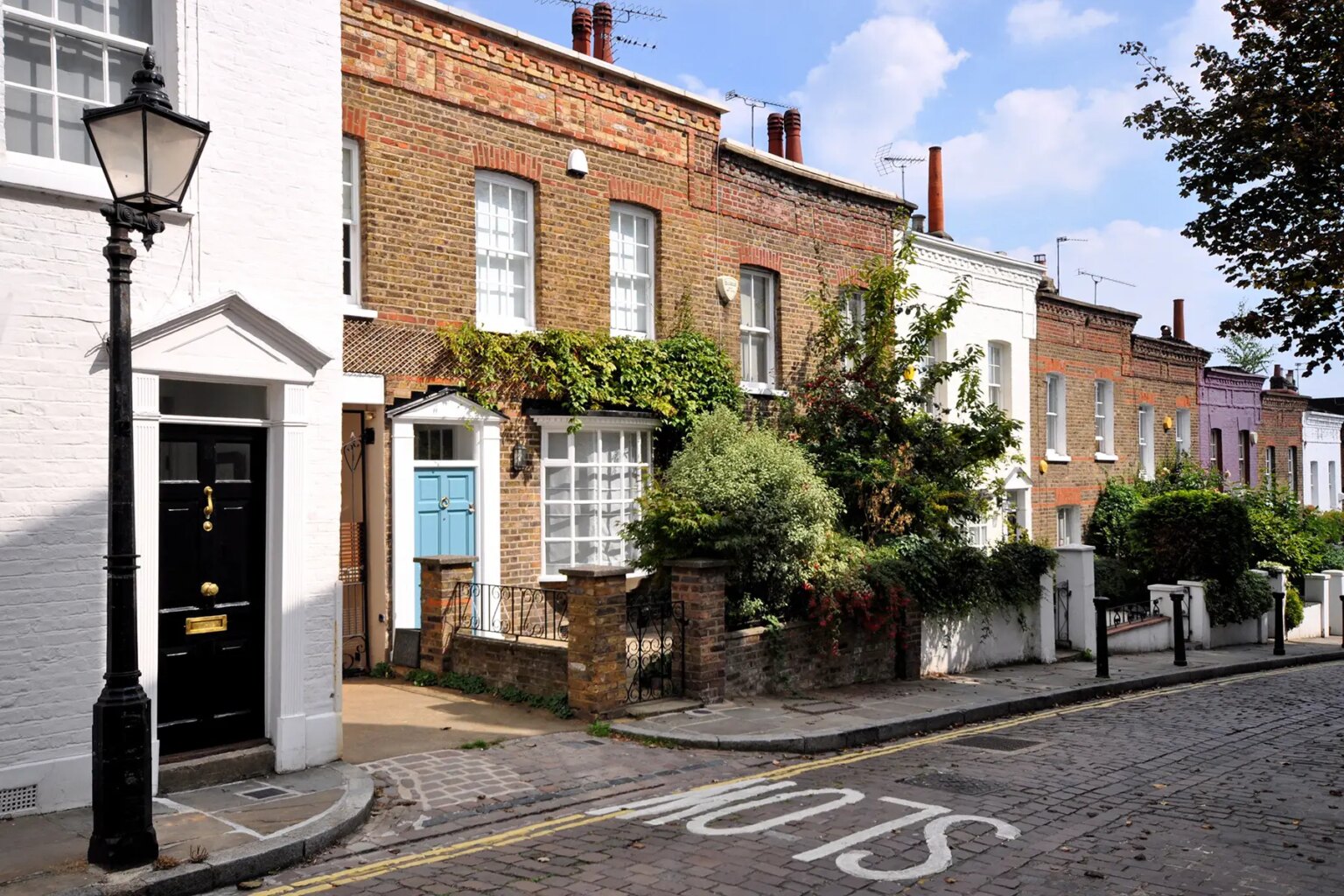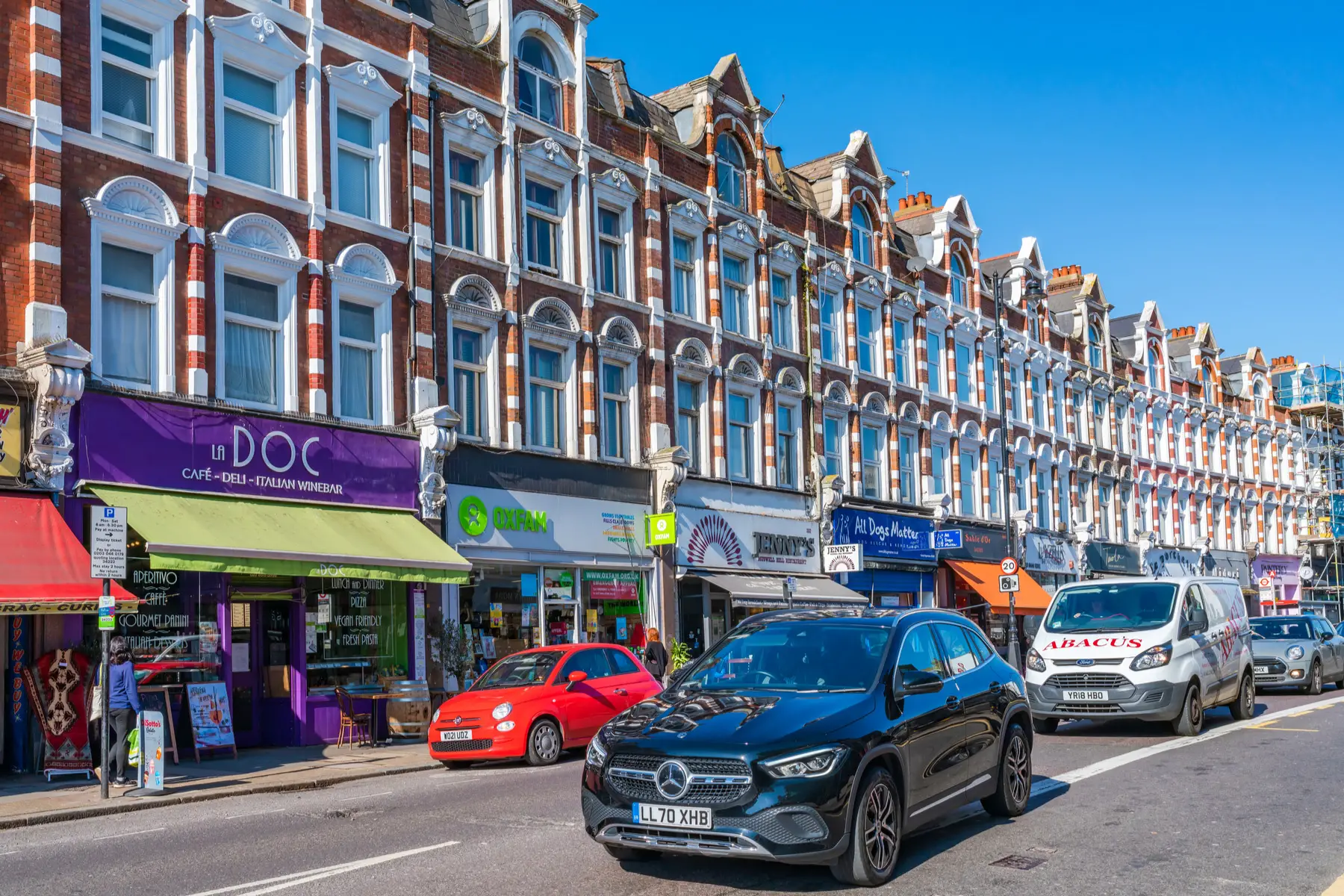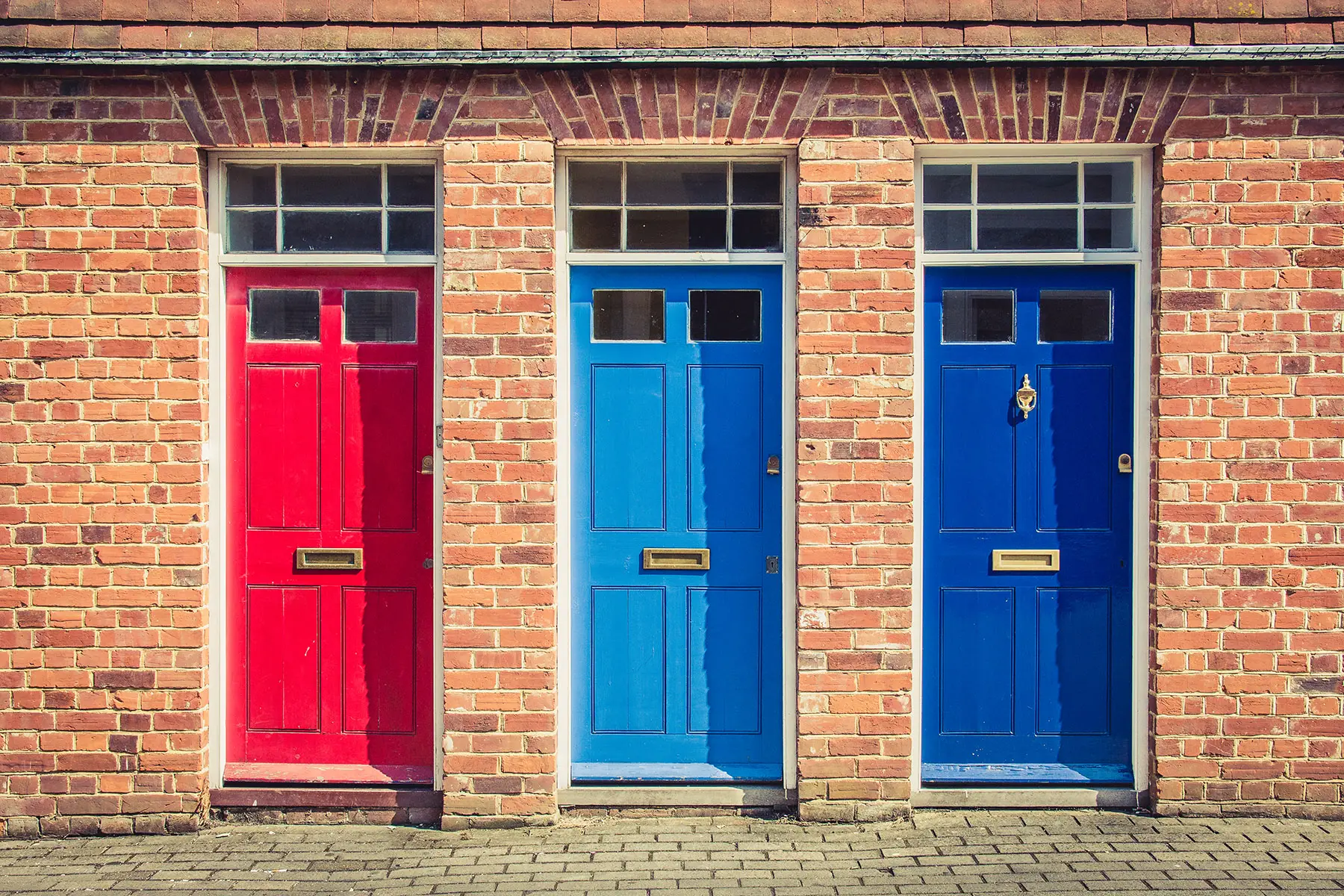There are many types of property to buy in the UK, and many who move there choose to buy rather than rent. Prices vary greatly across the various countries and regions. However, mortgages in the UK are available for those who can afford them. This article on buying a home in the UK looks at:
- Homeownership in the UK
- Should you rent or buy a house in the UK?
- Can expats buy a house in the UK?
- The UK property market and property prices
- Costs of buying a home in the UK
- Financing a property purchase in the UK
- Finding a property in the UK
- The process of buying a home in the UK
- Moving into your UK property
- Buying land to build a new property in the UK
- Buying a new-build home in the UK
- Selling a property in the UK
- Useful resources
Wise
Buying a property abroad is a big step and involves important financial decisions. Wise, an international money transfer company, provides specialist support to help you navigate large international transfers and save on exchange fees. Fill out Wise’s online form today to find out how they can assist you.
Homeownership in the UK
More than half (52.8%) of families in the UK own their own home according to latest statistics; 28.2% own properties outright and 24.6% own with a mortgage. This figure is lower than the EU average but higher than European countries such as Germany, France, and Switzerland.
The average age of first-time buyers has risen in recent years, mainly due to increased house prices. According to the Institute for Fiscal Studies, homeownership among young adults has more than halved over the last 20 years.
Should you rent or buy a house in the UK?
If you’re planning to stay in the UK long-term or you’re certain about a particular area, buying a UK house or apartment can be a feasible solution. This is particularly the case when considering the record-low interest rates on mortgages in recent years.
However, renting in the UK may be a better choice for foreigners intending to stay only a few years; it may be more difficult to recuperate stamp duty and other costs in the short term, as well as potential capital gains tax of 18–28% if you sell. Renting also allows newcomers to get a feel for different neighborhoods and be in a position to put in a quick offer. Read more about renting in the UK or renting in London.
Can expats buy a house in the UK?
There are no legal restrictions on expats buying property in the UK. Foreigners and non-residents can also get a mortgage in the UK. However, those with less than two years of residency in the UK and without a job may face more stringent requirements and a bigger deposit. See this guide to mortgages in the UK for more information. You will need to appoint a UK solicitor or conveyancer to handle the legal paperwork when buying a house in the UK.
Generally speaking, the same taxes apply on property and property-related income for non-residents as for UK residents. Stamp duty is paid at the same rate and Capital Gains Tax will be paid at the same rate if the property is sold at a profit. If you’re a non-resident landlord of a UK property, you’ll need to pay tax on rental income in the same way as resident landlords, although you may be able to get an exemption if you pay tax on this income in your home country and your country has a double taxation agreement with the UK. See this guide to UK taxes for more information.
The UK property market and property prices
There has been uncertainty regarding the UK property market since the Brexit vote in 2016, although the average house price across the UK has remained fairly stable and is currently around £287,000. Prices in London are more expensive than in other major cities, currently at an overall average of £473,822 (£912,343 for a detached home, £411,950 for an apartment). Average overall costs for other major cities include Manchester (£193,415), Edinburgh (£292,644), Cardiff (£250,618), and Belfast (£159,562). Looking towards the rest of the continent, the UK is comparatively quite expensive with the highest average price per square meter at €4,905.
Costs of buying a home in the UK
The costs associated with buying a home in the UK can be roughly split into two sections: upfront costs and ongoing costs.
Upfront costs to buy a house in the UK
These include:
- Stamp duty – this applies to all property purchases over £125,000 at rate of between 2-12% (or 3-13% for second homes or buy-to-let purchases). You can estimate the stamp duty you will pay using this calculator;
- Deposit – if you take out a UK mortgage to buy a house in the UK, you’ll need to pay a deposit towards costs which usually ranges between 5-40% of the property cost;
- Mortgage costs – if you take out a mortgage to buy your home, there are various fees associated with this including arrangement fee, booking fee, and valuation fee. These can add a couple of thousand pounds to the costs;
- Legal fees – you will need to employ a solicitor or conveyancer to act on your behalf, whether you take out a mortgage or not. These fees can be upwards of £1,000;
- Land registry fees – these are paid to the UK government for the purpose of transferring the property’s legal deeds to a new owner. Find more information on costs here
- Removal costs – this is the cost of transferring your possessions to the UK from your old home. If you pay a removal company to do this, costs will depend on how much you have to move and how far it has to travel, but average costs can be between £300-600;
Ongoing costs of buying a home in the UK
These include:
- Mortgage repayments – you’ll have to start paying back your mortgage the month after buying your home;
- Maintenance and repairs – if you buy a new-build or a home in good condition, these should be reasonably low. If you buy a house in the UK that needs a lot of work, it’s sensible to make a budget for how much additional money will need to be invested in the property;
- Insurance – building insurance and home contents insurance are both considerations. See this guide to insurance in the UK;
- Regular bills – you’ll need to pay council tax at a rate depending on the value of your property, plus utility bills in the UK such as gas, water and electricity;
- Leaseholder costs – if you buy a leasehold property, there may be additional charges such as ground rent which can be £50-100 a year
Financing a property purchase in the UK
Mortgages in the UK
If you need help financing the purchase, non-UK nationals can get an investment loan from a bank or mortgage broker. International banks such as HSBC also provide services in English. Most mortgage lenders offer various fixed-rate and variable-rate mortgages. They require you to raise a deposit, which is typically between 5-40% (usually higher for non-residents).
It may also be possible to secure a home loan abroad against existing assets, but there may be tax implications. Lender arrangement fees also vary by lender but can include a mortgage booking fee and arrangement or completion fee.
Your mortgage provider will check your credit score before granting you a mortgage. If you need to build your score, apps such as Credit Engine offer guidance and tools for improving your situation.
Read more in our guide to UK mortgages.
Assistance schemes in the UK
The UK government has introduced Help to Buy to help potential homeowners take the right steps when they buy a house in the UK. Social housing tenants have the right to buy their homes if they’ve been a tenant for at least three years. The government also offers a range of easy-to-use calculators through its Money Advice Service, which can help you determine what you can afford and the likely monthly cost of a mortgage.
Finding a property in the UK
UK houses for sale are most commonly listed with estate agents and on their websites, on online property websites, and in newspaper classifieds. You can also find properties for sale at property auctions and by scouting specific areas, looking for ‘For Sale’ signs outside properties, and contacting the estate agent the house is listed with. Regardless of how you find the listing, it will usually provide contact details for a private seller or their estate agent.
Searching online will reveal many websites and portals that list UK properties for sale, and you can also find places via our own housing portal in the UK.
Real estate agents in the UK
Real estate agents, or simply estate agents as they’re commonly known in the UK, are the usual method for house-hunting. They tailor their searches to meet your specifications, have extensive local knowledge, and generally have a wider variety of listings. They can also arrange viewings on your behalf, as well as help with price negotiation and buying procedures.
When you buy a house in the UK via an estate agent, it’s important to ask what their services include. Many UK estate agents offer solicitor and mortgage arrangement services that can make the process quicker and less hassle, but you can also shop around to get the right expertise for your circumstances and budget. Estate agent fees are usually charged to the seller so you shouldn’t have to pay them for general services if you are buying, although some may charge for additional services. Check upfront to see what costs you might incur.
There is a wide range of estate agents across the country for you to choose from. Most are local outfits that operate in specific areas and regions, so you may need to do your research when it comes to finding the one for you. However, there are a growing number of online and national agencies, including:
On websites like Rightmove, you’ll be able to compare properties across various agents, filtering by price, location, and more. You can register with multiple estate agents in the UK at the same time. They should be a member of the National Association of Estate Agents.
Viewing and choosing a property
You can carry out a viewing either directly with the seller or via a property agent. These will be by appointment, and, if with an agent, you’ll normally have to meet them either at the property address or the agent’s office. To get the most out of a viewing, make a list of things to check and questions to ask. You can view a property multiple times and it makes sense to see it at least twice; it’s best to go at different times of day (daytime and nighttime). Some estate agents offer remote viewings online, which is useful for those overseas or with busy schedules. However, these won’t give you the same depth of information on the property as an in-person visit. If you can’t attend a viewing in-person, try to get a friend or colleague to view it on your behalf.
The process of buying a home in the UK
The process of buying a house in the UK typically takes 2-3 months. This can be longer if you’re part of a chain of buyers and sellers waiting on the purchase or sale of other properties.
Before you start house-hunting, you should get an estimate of your finances so you know what you can afford, whether that’s a mortgage or your own capital. This will also prevent unnecessary delays once your offer has been accepted, or if you need to make a quick move to secure your ideal home. These are the key stages to follow once you’ve found a property you wish to buy a house in the UK.
Making an offer
Once finances are in place, you can put in an offer on a UK property, which can be done verbally or in writing via an estate agent or direct with a private seller. Once an offer has been accepted, the seller then draws up the contract for the transfer of legal ownership. In England, Wales, and Northern Ireland, the offer isn’t legally binding until contracts are exchanged. However, the standard process of buying a property differs in Scotland, where offers are communicated through a solicitor. Visit the Scottish government’s website for more in-depth information on buying property in Scotland.
You can offer either under or over the asking price when making a bid. Take into consideration how long the property has been on the market. Consider speaking with the estate agent or another property adviser. Properties in the UK do frequently sell for less than the asking price, but you do risk being beaten by another buyer if your bid is low.
Hiring a solicitor
You’ll need a solicitor to carry out the legal work around the sale. Registered solicitors and legal advisers can be found through the Law Society. Solicitor fees can vary, with many charging at an hourly rate. Typically they will cost between £500–1,500 plus VAT for work involving property sales. The solicitor represents you throughout the home-buying process. They check with the local authority to see if there are any planning issues that may affect the property’s value.
Getting a survey
Your mortgage lender arranges a valuation survey of the property. However, you may want to commission a property survey that takes into consideration potential maintenance and repair costs. You’ll have to pay for the survey, but they can save money in the long run if they identify issues that allow you to reduce your initial offer. There are different types of survey available, including:
- Royal Institute of Chartered Surveyors (RICS) condition report – this is a basic ‘traffic light’ survey often used for new-build homes. It doesn’t include advice or valuation. The cost is £250;
- RICS homebuyer report – this is a more detailed survey that includes a valuation. The typical cost is around £400+;
- Building or structural survey – recommended for older homes or those in need of repair. Typical cost is £600+
You can compare quotes from surveyors in your area through the RICS search tool.
Finalizing the offer and mortgage
If you commission a survey and it identifies problems, renegotiate the price in light of the new information. If you’re applying for a UK mortgage, you may also need to renegotiate if the survey values the property at a lower price as your mortgage provider will probably reduce the amount they are willing to lend.
NOTE: this is the last chance you have to pull out of the sale before the contracts are exchanged. Your mortgage lender will give you 7 days to accept the mortgage offer. You can cancel after signing for the mortgage, but you’ll lose the upfront fees for the mortgage costs.
Exchanging the contracts
If there are no problems, you’ll receive the contract from the seller’s solicitor to sign and complete the sale. Check the contract details with your solicitor and ask for amendments if necessary. Once you’re happy with the contract, you can sign it. This means you are committed to the sale. The contract should include all key details such as price and completion date as well as any conditions for the sale.
Organizing your finances and paying fees
Once the contracts have been signed, the money for the sale is transferred from your solicitor’s account and mortgage provider’s account to the seller’s solicitor’s account. It’s at this point that you will get the keys to your new home.
You will now have to pay any outstanding mortgage fees and solicitor fees. Your solicitor should register the sale with the Land Registry and pay any Stamp Duty due (these fees will normally be added to your legal bill).
If you have income from different countries or in various currencies, this may seem like a more complicated process. However, you have many options when it comes to purchasing property in the UK.
If you currently live in the country, you can open a domestic bank account. If you do not, you may want to speak to a financial advisor or consider a specialized money transfer service that can help you send money from a bank account outside the UK to purchase your property.
Wise, for example, has a specialist team to help move large transfers abroad and can save you money on exchange fees.
Moving into your UK property
Once you’ve finished the buying process you’re all ready to move into your new home in the UK. Only a few tasks remain to get things finalized.
TaskRabbit
Need help with your move, DIY, or other project? Search TaskRabbit to find a helping hand. Their platform lets you choose your Tasker based on their reviews, skills, and price, and when you want them to help you out. Visit TaskRabbit to take the stress out of your to-do list.
Getting insurance
If you take out a mortgage or buy a property to let, you’ll need to purchase building insurance which protects against damage to the property caused by things such as fire and flooding. You can also take out home contents insurance to protect your furniture and possessions. Many insurance firms offer a combined homeowners insurance which covers both the building and all its contents. See our guide to insurance in the UK for more information on available forms of insurance.
Utilities and telecommunications
Once you move in, you can sort out connecting utilities in the UK such as electricity, water, and gas. If they are already connected, you can transfer them to your name. Choosing your new energy or internet provider is fairly straightforward thanks to the UK’s many comparison websites. Sites like Uswitch and MoneySuperMarket let you compare providers easily, ensuring you get the best deal for you and your family.
However, many people in the UK still choose to stay with the same gas and electricity providers from their previous home; they simply change the address on their account. This is the same with TV, internet, and landline as many providers offer packages including all three, so it’s usually easier for people to stay with their existing package. Read more in our guide to setting up TV, phone, and internet in the UK.
Council tax
All UK residents, whether owning or renting, need to pay council tax on their homes. Notify your local authority once you move in; they will send you a council tax bill for the year. Costs are related to your property value and those living on their own get a 25% discount.
Buying land to build a new property in the UK
If you don’t fancy buying a home in the UK that already exists, another option is to get your own home built. Around 13,000 people in the UK do this every year. You’ll need to buy a plot with planning permission. These can be found online, through some estate agents and local councils. Costs vary but as a rough guide, the plot cost can be between 30-50% of the total value of the completed house and the building costs around 30-40% of the total value. Most of the plots available are on brownfield (previously developed) land. You can search for available plots on websites such as PlotBrowser and Plotfinder.
Buying a new-build home in the UK
The UK government pledged to build 300,000 new homes a year by the mid-2020s. They’re also offering help-to-buy incentives for those aged under 40. Buying a home in the UK that’s newly built can be an appealing option. Everything in the property is brand new and comes with a 10-year warranty against structural defects. Plus, if you buy off-plan, you may get to choose some design aspects.
However, there are drawbacks such as potential delays in building work completion and it can be tougher to get a mortgage for a new-build with some lenders. You’ll also need to look out for defects, which can be dealt with if the sales team are notified at the point of sale. The process for buying a new-build and getting a mortgage is much the same as for a property that’s already been built. Most new-builds are leasehold rather than freehold, meaning that you own the building but not the land it’s built on and may have to pay an annual ground rent fee. If you buy a new-build on a leasehold, check that it doesn’t have a ground rent doubling clause.
Selling a property in the UK
You can sell a home you own in the UK at any time. However, if you have a mortgage and are in negative equity (i.e., the value of the home is less than the mortgage outstanding on it), you must bear these losses yourself. You can sell your home privately or through an estate agent (high street or online agent) but will have to pay estate agent fees if you use one as well as the fees of a solicitor acting on your behalf throughout the sale. See our guide to selling a property in the UK for more information.
Useful resources
- gov.uk – contains an A-Z of key issues
- Shelter Scotland – charity website with information on housing issues
- Help to Buy – government website with information on assistance schemes
- Money Advice Service – information on buying a home in the UK
- Right to Buy – information for social housing tenants who want to buy their home
- Government Property Finder – search portal for government-owned property, buildings, and land in the UK







